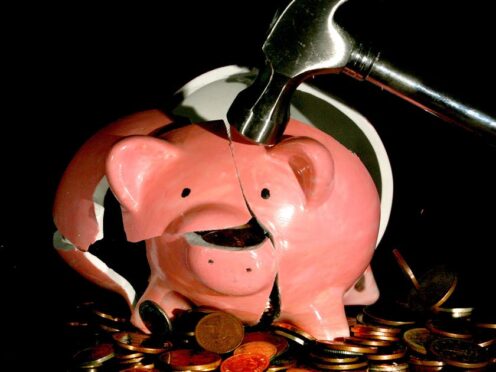More than half of people receiving universal credit have recently run out of food and been unable to afford more, according to a survey for an anti-poverty charity.
Just over half (52%) of people claiming the benefit are either behind on bills and credit commitments or are finding it a constant struggle to keep up with them, a survey for the Trussell Trust found.
More than two-fifths (42%) are behind with one household bill or more.
The YouGov research among universal credit recipients, carried out from January 18 to February 5, found that one in eight (12%) had used a food bank in the previous month while 55% had run out of food in the past month and could not afford more.
More than a fifth (22%) of universal credit recipients had been unable to cook hot food in the past three months as they could not afford to use their oven or other utilities.
Just over a quarter (26%) have missed an essential appointment, such as visiting the doctor or travelling to work, because they could not afford the cost of transport in the past three months.
Some 43% of people reported being unable to keep their home warm this winter.
Temporary measures such as the cost-of-living payments have helped people on the lowest incomes but they have only provided short-term respite, the Trussell Trust said.
It is urging the UK Government to introduce an “essentials guarantee” so the basic rate of universal credit is always enough to cover life’s essentials and support can never be pulled below that level.
Emma Revie, chief executive of the Trussell Trust, said: “Food banks do all they can to support people in their communities but charities alone can’t take the place of a social security system that should support any of us who have fallen on hard times and need help.”
YouGov surveyed more than 1,300 people who are claiming universal credit.
James Taylor, executive director of strategy at disability equality charity Scope, said: “Life costs a lot more when you’re disabled, and many disabled people have no choice but to rely on benefits for income.
“At Scope, we are hearing from disabled people who are going days without eating, using candles instead of lights and rationing the use of wheelchairs to save power.”
A Government spokesperson said: “We are providing £104 billion in cost-of-living living support worth on average £3,700 per household, including investing over £2 billion into the household support fund to help those in most need, and almost £800 million has been paid out to families with children so far.
“Since 2010 there are 1.7 million fewer people living in absolute poverty, and we know work is the best route out of poverty, so we’re going even further, raising the national living wage, cutting national insurance, curbing inflation and investing billions through our back to work plan to break down barriers to work so even more people can secure long-term financial security.”
